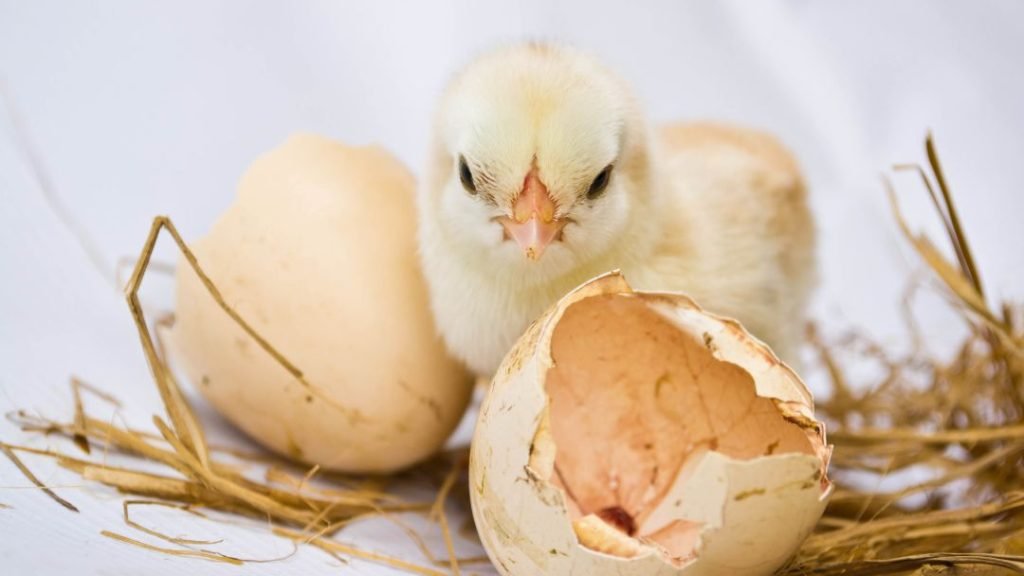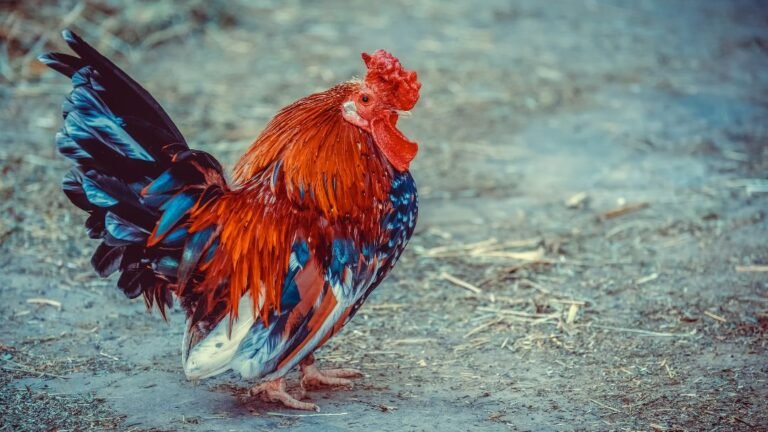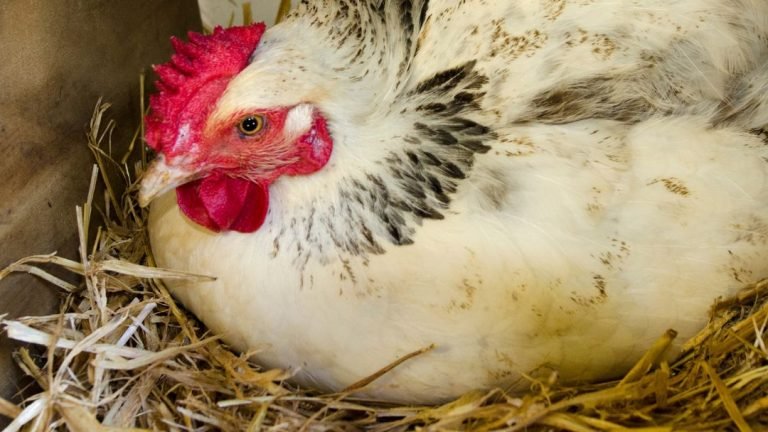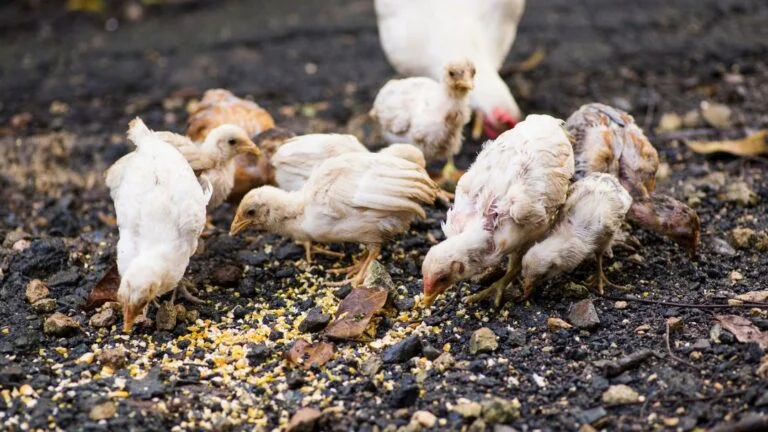Earlier, chicken keepers used hens in a motherly way to incubate the eggs. But once the incubator was invented in 1922 by Ira M. Petersime of Gettysburg, chicken owners started using it to hatch eggs. You have better control over the temperature and humidity.
How long does an incubator take to hatch? This electric device generally takes 21 days to hatch eggs. Sometimes, the incubation can be 23 or up to 26 for some reason. But smaller eggs from Bantam breeds may take only 19-20 days to hatch due to their tiny size.
Last update on 2026-02-06 / Affiliate links / Images from Amazon Product Advertising API
How Long Does an Egg Incubator Take To Hatch?
A chicken egg incubator generally takes 21 days to incubate eggs after setting them up inside the electric device.
But smaller eggs from Bantam breeds may take only 19-20 days to hatch due to their tiny size.
However, it may take up to 23 days in a few cases. In fact, a chicken keeper shared that his incubator took 25 days to incubate an egg. It is pretty uncommon, though.
You should not give up if the eggs take more than 21 days. Inspects the egg conditions and gives them enough time for incubation.
You can wait up to 25-26 days. If the eggs don’t hatch within 26 days, they will no longer hatch.

What Factors Affect How Long An Egg Incubator Takes to Hatch?
Chicken eggs generally take 21 days to hatch. But some following factors can affect their incubation period directly or indirectly.
01. Age Of The Egg
As an egg ages, its quality and viability decrease. A fresh egg has all the nutrients and genetic material necessary for a chick to develop.
But these nutrients will degrade over time. If it is a bit old, the incubator may take a bit more time to hatch the eggs.
Generally, experts recommend using the eggs for hatching within 7 to 10 days once a hen lays the egg.
The hatching success rate decreases from 0.5% to 1.5% for each day after 7 days have passed.
02. Health Of The Mother Hen
Does your hen have any illness? If she has any diseases or parasites, such as salmonella or mites, she may transmit these to her eggs. It can affect hatchability and chick health.
Besides, if the hen is malnourished or stressed, the quality of the eggs she lays may be lower, with thinner shells or fewer nutrients.
Collecting eggs from younger, healthy, and well-cared hens is a good rule of thumb as they lay better quality eggs that can be incubated on time.
03. Different Species Of Eggs
Have you tried to keep eggs from different species together in the same incubator?
If you use the incubator as a hatcher, don’t make this type of mistake.
It will otherwise affect the incubation period because not all species of eggs have an incubation period.
Some might be hatched a little earlier than 21 days. A few may take up to 23 days to hatch.
Besides, some species may require higher or lower incubation temperatures, humidity levels, or ventilation requirements.
A good rule of thumb is hatching one species of egg in an incubator at a time.
It allows you to ensure optimized incubation conditions and maximize the chances of successful hatching.
04. Egg Size
Minorca, Jersey Giants, Leghorn, Lohmann Brown, New Hampshires, etc., are well-known for laying relatively larger eggs.
In contrast, Serama Bantam, Dutch Bantam, Appenzeller Bantam, Old English Game, Japanese Bantam, Belgian D’Anvers, etc., lay a bit smaller eggs.
Bigger eggs will need a bit more incubation time than smaller eggs. Developing an embryo in a larger egg may require more time to fully absorb and utilize the yolk before it is ready to hatch.
Besides, bigger eggs may have thicker shells than smaller eggs. It can affect the rate at which heat is transferred to the developing embryo.
The thicker the eggshell, the longer it may take for heat to penetrate the shell and reach the embryo. It can affect the overall incubation time.
05. Temperature
Another critical factor that affects the incubation period is temperature. Higher temperature speeds up the incubation period, whereas lower temperature does the opposite.
According to a study by NCBI, if the temperature is 36–36.5°C or lower for the first week, it can significantly affect the incubation period.
It causes the embryos to develop too slowly and the chicks to hatch later than expected.
However, the research also showed that the temperature couldn’t be too high.
If it is 38.9°C or higher in the first week, it can affect chick and yolk sac weight and decrease the incubation time.
Too much heat causes the embryos to overheat and dehydrate. It can result in reduced hatch rates or even embryo mortality.
06. Humidity Level
Chicken eggs need around 50%-55% humidity for the first 18 days and 70%-75% relative humidity for the last three days.
Higher humidity is necessary for the final three days of chicken incubation to make the egg shells softer quickly and hatch eggs effortlessly.
Less than 50% humidity will cause the eggs to lose moisture and become dehydrated. The eggs will start losing weight gradually.
It will affect the average growth and development of the embryo. Plus, the eggshells will become more brittle due to dehydration. The incubation period will increase.
In contrast, if the humidity exceeds the requirement, it will prevent normal evaporation.
The eggs might be too “wet.” They will face trouble drying up and delay the incubation period.
07. Turning Eggs
Turning the eggs at least five times every 24 hours is necessary. Experts recommend rotating eggs once every 4 hours.
It is vital for the first seven days. Once 15 days pass, it is not necessary to turn the eggs anymore.
Also, you should avoid turning eggs during the final three days of chicken incubation for successful hatching.
Turning the eggs daily 4-6 times will ensure healthy embryo development.
If you forget to rotate the eggs for several days, it may cause the yolk to come into contact with the inner shell membranes.
This will increase the incubation time. In some cases, the eggs may not hatch at all.
08. Incubator Lid Position
Keeping the incubator open may give scope heat and moisture to escape from the incubator.
It will be challenging to maintain a stable and consistent environment for hatching. The incubator will fail to maintain optimal temperature, humidity, and air quality.
It may sometimes introduce harmful pathogens, bacteria, or pollutants. Opening the incubator may infect the embryos and cause health issues.
Besides, the eggs will cool down rapidly. It can lead to delayed hatching or the development of chicks with physical abnormalities.
09. Proper Egg Storage
Even after using eggs aged less than 10 days, they may delay incubation due to improper handling.
Normal temperatures might be too hot or cold for eggs. Storing eggs at 55 degrees F. temperature and 75% relative humidity is a good rule of thumb.
You must keep them away from direct sunlight. Too hot temperatures can reduce the longevity of an egg. They can go bad quickly.
However, it doesn’t mean you will store eggs in frozen temperatures. It may make the ingredients of the egg too hard. Eggs will lose their capability to hatch on time.
What To Do If Chicken Eggs Don’t Hatch On Time?
Chicken eggs may delay hatching for the reasons we have already discussed. In some cases, they may not incubate after 23-26 days.
If you have placed infertile eggs, they won’t incubate. You can candle the eggs if they have not hatched after 23-26 days.
Candling The Eggs
One of the practical approaches is candling the eggs. This process involves keeping a bright light near the egg to see the inner contents. It lets you know whether any embryo develops or not.
It is unlikely to hatch if you don’t see any bloody whites, blood spots, or meat spots inside the egg. You should dispose of the eggs as they are not suitable for eating.
Either the eggs are infertile. Or, the chick might have died after a certain period for some unknown reason.
Float Test
Another alternative method is performing a float test. It lets you know the current condition of the egg.
Grab a bucket of water. Make sure the water temperature is 38°C. Submerge the egg carefully without dropping it roughly.
Keep it for a few seconds to stabilize its position in the water. It can show three probable results.
| Egg Position | Actual Result |
| Sinking at the bottom of the water | Doesn’t have any live chick and no chance of development |
| Floating low in the water | Fully developed chick |
| Floating higher in the water | Proportionally developed chick |
However, this test is not practical for performing always. Keeping the partially hatched eggs outside the incubator may significantly affect the health of the live chick.
Tips For Incubating Eggs On Time
01. Don’t mix too old eggs with fresh eggs. Otherwise, older ones may take longer to hatch than newer ones.
02. Make sure to use the latest eggs for hatching. Their eggs should not be more than 10 days.
03. Avoid using any dirty or cracked eggs for hatching. They have reduced hatchability.
04. Place the eggs carefully on the egg tray of the incubator. The narrower end should face downward, whereas the larger end should face upward in the electric device.
05. Adjust the incubator settings perfectly before inserting the eggs. It is a good rule of thumb to make the incubator warm enough before adding the eggs.
06. Invest in a reliable egg incubator that shows accurate humidity and temperature readings and creates an ideal environmental condition for hatching eggs.
07. Keep the incubator in a clean, dry, and draft-free location. The place should be stable to avoid shaking or movements.
08. Don’t forget to clean the incubator thoroughly and make it hygienic to prevent the spreading of diseases and infections.
Conclusions
Eggs generally take 21-23 days to incubate. If they are not still hatching, you can use a candle to determine the appropriate conditions.
It is no longer worth waiting when you don’t see any sign of embryo development. You may have used infertile eggs for hatching.
Dispose of these eggs as they are not appropriate for eating. Don’t feed them to your chickens, too. They may contain harmful bacteria, which can harm your feathered friends.




